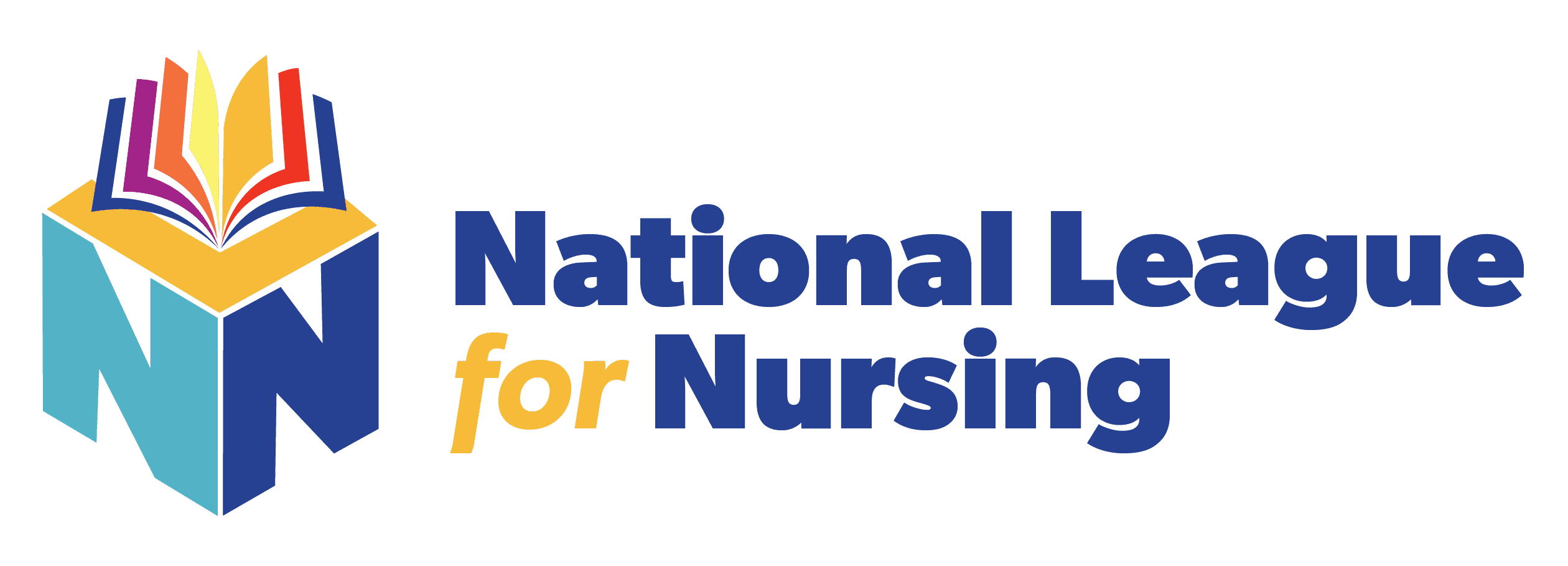Nursing Education Perspectives Publishes Special Themed Edition on Diversity, Equity & Inclusion in Nursing Education
Plus 5th Annual “Best of NEP” Awards during NLN Education Summit
Washington, DC — Leading educators are grappling with the challenges of how to maintain diversity, equity and inclusion (DEI) on campuses nationwide. Nowhere is this question more pressing than in nursing education, where promoting DEI is more than academic. The importance of building a strong and diverse nursing workforce capable of delivering quality, culturally humble, equitable care has a profound impact on patient outcomes and public health.
Reflecting the current dialogue and debate among educational researchers, thought leaders in health care, legal scholars, and policymakers,
Nursing Education Perspectives, the respected peer-reviewed scholarly journal published by the
National League for Nursing,
has devoted the September/October edition to an in-depth examination of diversity, equity and inclusion in nursing education.
With an emphasis on evidence-based actions, the issue explores transformational and innovative strategies for instruction in academic and clinical settings. These provide tools to dismantle systemic inequities and institutional racism to advance social,
environmental and economic justice.
"With this issue, the National League for Nursing reaffirms staunch support of nurses and nurse educators determined to achieve health equity for the benefit of all individuals, families and communities that deserve the best care our nation’s nursing
workforce can provide,” said NLN President and CEO Beverly Malone, PhD, RN, FAAN. “Initiatives devoted to increasing diversity, equity and inclusion in nursing and nursing education are essential to the task of safeguarding public health,
including social and emotional welfare.”
In their guest editorial, NEP Editorial Board members Drs. Steven J. Palazzo, Cheryl Green and Sandra Davis identify longstanding practices in academic progression in nursing education as one area ripe for change. In their view:
The transition from the prerequisite courses typical of the first two years of study to more rigorous nursing courses can come as a shock to many students. Nursing students who struggle are often affected by structures and systems that discourage or make academic progression difficult and unforgiving…
Some things…are decidedly not in a student’s control: being a first-generation college student, racism, sexual orientation, gender identity, a history of family trauma, challenges with mental health, death of a loved one, financial hardship, food insecurity, and housing difficulties.
As they persuasively argue, if students from traditionally marginalized groups are to be actively recruited in the interest of better representing the profession and upgrading delivery of culturally humble, equitable patient care, policies and practices
that guide academic progression must become more progressive to compensate for the lack of resources and support services such students often encounter. Appropriate changes would adopt a fair and compassionate approach to facilitate academic progression,
without sacrificing students’ successful completion of nursing competencies essential to safe, quality patient care.
NLN Chair Kathleen Poindexter, PhD, RN, CNE, ANEF, interim associate dean for academic affairs and assistant dean for undergraduate programs and faculty development at Michigan State University in Lansing, expands on the theme in her published message,
The Evolving Role of Nurse Educators and Leaders in Dismantling Racism in Nursing and Advocating for Health Equity and Justice.
In the immediate aftermath of the COVID-19 pandemic, she writes, “The inequities that existed in care delivery and access could no longer be ignored and demanded immediate action to address the longstanding issues interwoven into the fabric of our
society.” Dr. Poindexter continues:
To address gaps in access to care, the future nursing workforce will require greater diversity and specialized education and preparation to help improve health outcomes for marginalized and underserved populations. As outlined in the Future of Nursing 2020-2030 report, strengthening the nursing workforce is a key initiative to enhance nursing’s role in advancing equitable health care and promoting environmental justice.
The September-October 2023 issue is posted on the journal’s website at
NEPonline.net, open access, in time for presentation and dialogue to be held during the
2023 NLN Education Summit, September 28-30 at National Harbor near Washington, D.C.
“Best of NEP” Awarded at NLN Education Summit
The “Best of NEP” Awards will again be a highlight of the NLN Education Summit. Those interested in learning more about the process of scholarly writing may connect at this event with NEP editors, who will be happy to answer questions about
the steps involved, from conception through writing, peer review and publication.
Feature Articles
• First Place
Shellenbarger, Teresa; Sebach, Aaron M.
Vol. 43, No. 4, pp. 217-221, July/August 2022
• Honorable Mentions
Richardson, Deborah C.; Welch, Susan
Vol. 43, No. 6, pp. 351-356, November/December 2022
Gazza, Elizabeth A.
Vol. 43, No. 2, pp. 74-79, March/April 2022
Research Briefs
• First Place
Ruth-Sahd, Lisa
Vol. 43, No. 4, pp. 238-240, July/August 2022
• Honorable Mentions
Libner, Joan
Vol. 43, No. 2, pp. 109-111, March/April 202
Allen, Kimberly; DiBartolo, Mary C.; Walsh, Catherine M.; Freda, Kaynabess
Vol. 43, No. 4, pp. 252-254, July/August 2022
Innovation Center
• First Place
Daw, Peggy; Seldomridge, Lisa A.; Ford, Kimberly; D’Aoust, Rita
Vol. 43, No. 1, pp. 63-65, January/February 2022
• Honorable Mentions
McNiel, Paula; Koplitz, Jodi
Vol. 43, No. 1, pp. 60-62, January/February 2022
Jean-Baptiste, Anne Marie; Asongwed, Elmira
Vol. 43, No. 1, pp. 57-59, January/February 2022
#####
About the National League for Nursing
Dedicated to excellence in nursing, the National League for Nursing is the premier organization for nurse faculty and leaders in nursing education. The NLN offers professional development, networking opportunities, testing services, nursing research grants,
and public policy initiatives to its nearly 45,000 individual and 1,000 institutional members, comprising nursing education programs across the spectrum of higher education and health care organizations. Learn more at NLN.org.
